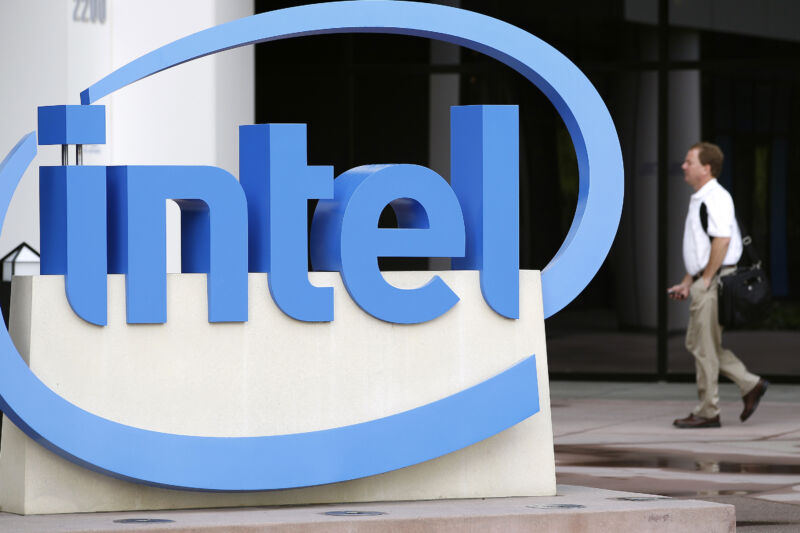

Intel announces another megafab as chipmaker expands EU footprint
source link: https://arstechnica.com/tech-policy/2022/03/intel-announces-another-megafab-as-chipmaker-expands-eu-footprint/
Go to the source link to view the article. You can view the picture content, updated content and better typesetting reading experience. If the link is broken, please click the button below to view the snapshot at that time.
Chips, chips, chips —
Intel announces another megafab as chipmaker expands EU footprint
Move will shore up its operations in the EU while adding foundry capacity.
Tim De Chant - 3/16/2022, 12:50 PM

Intel announced another string of investments yesterday, this time focused on shoring up its chipmaking efforts in Europe. The company has committed $36 billion so far, and if it completes all the projects it's considering, it’ll spend nearly $88 billion across six countries.
The centerpiece of the investment is a megafab in Magdeburg, Germany, some 70 miles west of Berlin. Intel intends to break ground next year on two new fabs and start etching wafers in 2027 using the company’s “most advanced, Angstrom-era transistor technologies.” Which ones those will be largely depends on how successful Intel’s aggressive R&D efforts are over the next few years. Total bill for this part of the project: $18.5 billion. The new fabs will add capacity to feed Intel's foundry ambitions, which CEO Pat Gelsinger is betting will help the company regain the leading edge.Next up are Intel’s existing fabs in Leixlip, Ireland. There, the semiconductor manufacturer is spending another $13 billion to upgrade and expand the factories to accommodate its Intel 4 process (previously known as 7 nm). The project is already underway and should start production in 2023.
Elsewhere, the company is adding research and development centers in France and Poland, both of which will open next year, and a new supercomputing center in Barcelona, Spain. It’s also mulling an advanced packaging facility in Italy.
Geopolitical worries
The European Union, like the US, has been keen to bring more semiconductor manufacturing within its member states’ borders. Currently, nearly all of the world’s most advanced chips—and a significant portion of all semiconductors—are made in East Asian countries. Taiwan, in particular, dominates thanks to TSMC, the world’s largest foundry. Over the next three years, TSMC said it will invest $100 billion to expand its capacity. Much of that will likely be spent in Taiwan, but the company has already committed to a $12 billion fab in Arizona. So far, the company hasn’t said whether it will be spending any large sums in Europe.
Advertisement
Gelsinger has been talking with EU leaders for months, and he said that whether the company completes every project on its wishlist will depend on whether the bloc delivers on the chipmaking subsidies it has been debating.
Both the EU and US have been spooked in recent years as they’ve suddenly noticed their dwindling share of global semiconductor manufacturing. Part of the motivation comes courtesy of China, which has said it will spend vast sums to boost its domestic chipmaking sector. While the country undoubtedly has its sights set on the most advanced chips, it’s more likely to capture market share at the lower-end. Chipmaking is not as profitable down there, but there’s plenty of volume available, and any Chinese-made chips would help reduce the country’s dependence on semiconductor imports, which total around $300 billion annually.
For now, China is locked out of the leading edge since it lacks access to EUV lithography equipment. The only company that makes the machines, the Netherlands' ASML, is barred from selling them to China. Recreating the tools could take Chinese engineers a decade or more, all while ASML continues to press ahead.ASML is a European company, of course, as are many of its suppliers, including Carl Zeiss, which makes the precision mirrors used in the EUV machines.
While the EU doesn’t have any leading-edge semiconductor manufacturers itself, it does have firm footing in chipmaking. NXP Semiconductors, which merged with Freescale in 2015, is based in Eindhoven, Netherlands. Infineon, which focuses on automotive and industrial chips, is based in Germany. And STMicroelectronics is headquartered in Switzerland. That company is building a new fab in Italy along with Tower Semiconductor, which Intel is in the process of acquiring.
Recommend
About Joyk
Aggregate valuable and interesting links.
Joyk means Joy of geeK